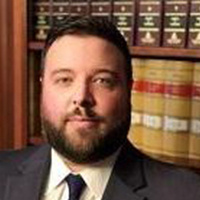Bristol Misdemeanor Lawyer, Connecticut
Sponsored Law Firm
-
 x
x

Click For More Info:
-
Andrew M Amendola, Attorney at Law
591 Thompson Avenue East Haven, CT 06512» view mapAccident & Injury, Criminal, Estate, Real Estate Where Every Client Matters
Let Andrew M Amendola, Attorney at Law handle all your legal needs today@
800-942-4780
Not enough matches for Bristol Misdemeanor lawyer.
Below are all Bristol Criminal lawyers.
Cheryl Jean Moran
✓ VERIFIEDDefending felony, misdemeanor & infraction criminal cases. Licensed in New York, New Jersey & Connecticut. Specializing in representing indigent defen... (more)
James William Cummings
✓ VERIFIEDAt your side, on your side, every step of the way Respected personal, family, business and general practice lawyer James W. Cummings stands by his ... (more)
Steven Howard Levy
✓ VERIFIEDAttorney Levy earned his B.A. from the State University of New York at Buffalo, and his J.D. from Antioch School of Law. He was admitted to the Connec... (more)
Robert A Salerno
✓ VERIFIEDRobert A. Salerno attended Law School and received a B.S. from High Point University in 2005 and his Juris Doctor in 2009 from Touro Law Center. He wa... (more)
 Andrew Amendola East Haven, CT
Andrew Amendola East Haven, CT AboutAndrew M Amendola, Attorney at Law
AboutAndrew M Amendola, Attorney at Law




